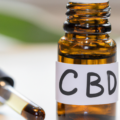Introduction
Anxiety disorders are a common mental health issue affecting millions of people worldwide.
These disorders can significantly impact a person’s quality of life, leading to a wide range of physical and emotional symptoms, including panic attacks, restlessness, and irritability.
While there are several treatments available for anxiety, many come with unwanted side effects or may be ineffective for some individuals.
Recently, cannabidiol (CBD), a non-psychoactive compound found in the cannabis plant, has gained popularity as a potential aid for anxiety.
In this article, we’ll explore the evidence supporting CBD’s effectiveness for anxiety and how it might work to alleviate symptoms.
Main Section(s)
What is CBD?
CBD is a naturally occurring compound found in the cannabis plant.
Unlike tetrahydrocannabinol (THC), another compound found in cannabis, CBD is non-psychoactive, which means that it doesn’t produce the "high" associated with marijuana use.
CBD is available in a variety of forms, including oils, capsules, and topical products, and is commonly used for a range of health issues, including chronic pain, epilepsy, and anxiety.
How CBD Might Work for Anxiety
The exact mechanisms by which CBD might work to alleviate anxiety symptoms are not yet fully understood.
It’s thought that CBD may affect the body’s endocannabinoid system, which is responsible for regulating various physiological processes, including mood, sleep, and appetite.
CBD may also interact with serotonin receptors in the brain, which could help to reduce anxiety symptoms.
Some studies have suggested that CBD might reduce anxiety by increasing the levels of anandamide, a neurotransmitter associated with feelings of happiness and well-being.
Evidence Supporting CBD for Anxiety
While there is still limited scientific research on the effectiveness of CBD for anxiety, some early studies have shown promising results.
For example, a small study published in 2019 found that CBD reduced anxiety in individuals with social anxiety disorder.
Another study published in 2015 found that CBD reduced anxiety in individuals with generalized anxiety disorder (GAD). While these studies suggest that CBD may be an effective aid for anxiety, more research is needed to confirm these findings and determine the optimal dosage and treatment length.
Side Effects of CBD
While CBD is generally considered safe, some individuals may experience side effects, including dizziness, nausea, and dry mouth.
CBD may also interact with certain medications, so it’s essential to talk to a healthcare provider before starting a CBD regimen.
In addition, because the CBD industry is largely unregulated, it’s important to purchase CBD products from reputable sources.
Conclusion
CBD shows promise as a potential aid for anxiety, but more research is needed to confirm its effectiveness and determine the optimal dosage and treatment length.
Anyone considering using CBD for anxiety should talk to a healthcare provider first to ensure that it’s safe and appropriate for their needs.
While CBD is generally considered safe, it’s important to be aware of potential side effects and to purchase products from trustworthy sources.
FAQ
What is the difference between CBD and THC?
CBD and THC are both compounds found in the cannabis plant, but they have different effects on the body.
THC is psychoactive, which means that it produces a "high," while CBD is non-psychoactive and does not produce any intoxicating effects.
Is CBD legal?
The legal status of CBD varies by country and state.
In the United States, for example, CBD derived from hemp (a type of cannabis with low levels of THC) is legal, while CBD derived from marijuana is illegal under federal law but legal in some states.
Is CBD addictive?
CBD is not addictive and does not produce the same "high" associated with marijuana use.
What forms of CBD are available?
CBD is available in a variety of forms, including oils, capsules, gummies, topical creams, and more.
How long does it take for CBD to work?
The amount of time it takes for CBD to take effect can vary depending on the person and the method of consumption.
In general, CBD taken orally (such as in capsules or gummies) can take up to 30 minutes to take effect, while CBD applied topically may take longer to work.
Can CBD help with other mental health issues?
While research on CBD’s effectiveness for other mental health issues is still limited, some studies have suggested that it may be helpful for depression, post-traumatic stress disorder (PTSD), and other conditions.
However, more research is needed to confirm these findings.
I am a CBD enthusiast and creator of DJ Hemp who has made it my mission to enlighten the world about the cannabis industry through thought-provoking literary works.
I have successfully fostered an open-minded, inquisitive community that is eager to learn more about the potential benefits of CBD.
Contact me at [email protected] for assistance.





